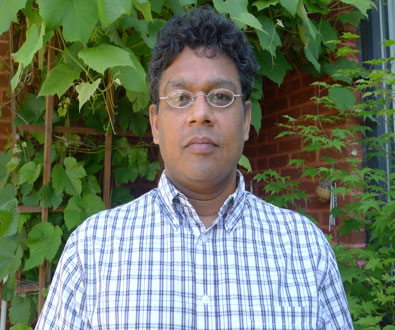
24 June 2015
Extensive research is being focused today on how human genome aberrations contribute to the onset and progression of disease. Structural variations, gene mutations, deletions, and insertions have all been found to play a role. Yet up until recently, researchers have been limited in studying how genetic changes in the DNA or RNA driving specific biological subsystems might be involved in disease onset and progression.
An innovative research team at the Icahn School of Medicine at Mount Sinai led by Ravi Sachidanandam, PhD, is focused on developing new methods to study three of these important subsystems: mitochondrial DNA (mtDNA), T cell receptor (TCR) diversity, and the piwi-interacting RNA (piRNA) pathway. Each has been difficult to study in the past.
mtDNA studies are challenging, because it is hard to parse out mtDNA from the whole genome for sequencing purposes to identify its potential role in disease processes. Sequencing the full TCR repertoire is time-consuming, limiting detailed study of the adaptive immune system, its role in autoimmune disease, and immune and vaccine response. Researchers have also faced challenges in deciphering role of the piRNA pathway in defending the germline against attacks from transposons that could impact fertility.
Working with Illumina sequencing systems for the past 5 years, Dr. Sachidanandam and his team invented a new method for removing biases in small RNA sequencing while studying piRNAs. They also developed a method to sequence mtDNA with high resolution, without having to simultaneously sequence the nuclear genome, and are working on new, sequencing-based approaches for monitoring TCR response in blood. In 2015, his team installed a NextSeq 500 System in the Oncological Sciences department to expedite their research studies.
Illumina spoke with Dr. Sachidanandam to learn how his team is using the NextSeq 500 System to develop novel sequencing methods. To read the interview, visit here.


